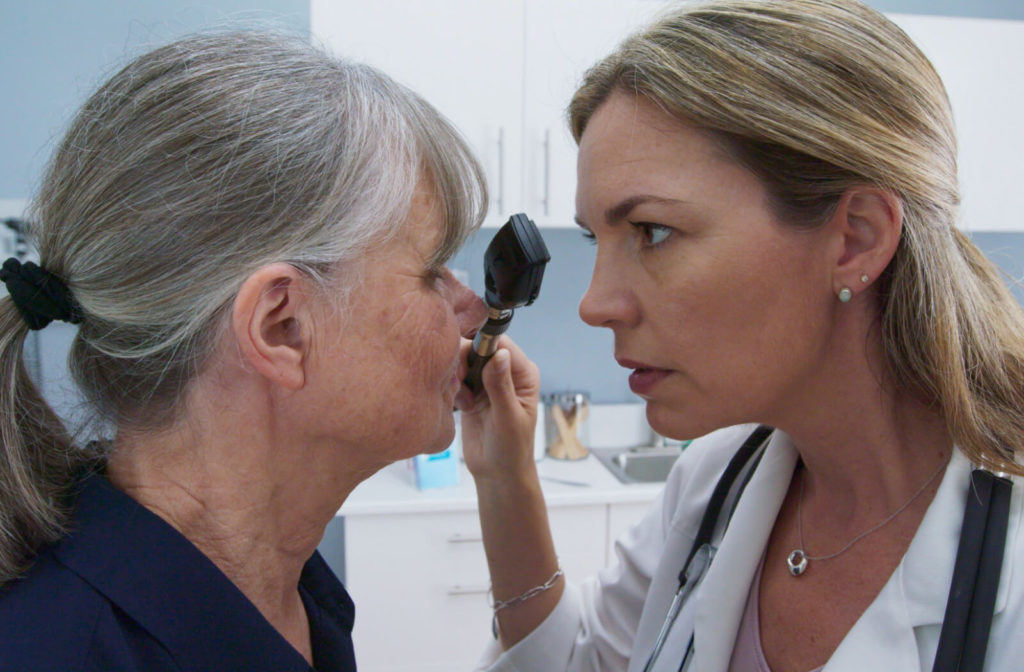Your vision is an important part of your health. There are many reasons you should have regular eye exams with your optometrist and they’re not limited to changes to your vision and eye health.
There are many diseases and conditions in other parts of your body that your optometrist can detect through comprehensive eye exams. Often, small or minor changes in your eyes can be linked to other health issues that you may not even know you’re experiencing. An eye exam is an important preventive health measure that can detect issues early, before they cause permanent damage.
Regular eye exams can also help ensure that your prescription is up to date and your eye health is optimal. Beyond checking the regular issues, such as if you need corrective lenses or conditions that are related to your vision, your optometrist can spot other diseases either in early stages or before they have been fully diagnosed by other health care professionals.
Common Issues Eye Exams Can Detect
Your eyes are windows into your health. There are many signs and symptoms of other conditions that can be detected through comprehensive eye exams. Some of the conditions and diseases that your doctor can detect through eye exams are:
- Aneurysm: a bubble in the wall of a blood vessel. Severe headaches or loss of facial function in parts of the face are two signs your eye doctor may detect.
- Brain Tumor: with brain tumors, there is often increased pressure which gets transmitted through your eye.
- Diabetes: if there are leaks or yellow fluid behind the retina, these could be indicators of the disease. At times, this can be detected before the patient has even been diagnosed with diabetes.
- Vitamin A Deficiency: night blindness and dry eyes are often signs of vitamin A deficiency in your system.
- Heart Disease: typically, people who have a family history of heart disease will show signs when their optometrist does comprehensive exams.
- Thyroid Disease: if your eyelids are retracting or your eyeballs are protruding, these could be indicators that you are suffering from thyroid complications.
- High Blood Pressure: blood vessels behind the eye that have unusual kinks or bends can be indicators of high blood pressure.
- Cancer: certain types of cancer, such as those affecting blood, tissue, or skin will affect the outer part of the eye or eyelid.
- Rheumatoid Arthritis: often, this disease presents with severe eye pain and redness
Do I Need to Ask My Optometrist to Check For Other Conditions?
Your optometrist will check during each comprehensive exam for signs of other health conditions. Comprehensive eye exams will monitor changes to your eye health so that your doctor can keep track of symptoms that can be linked to something more serious. Oftentimes, if there is something concerning, your optometrist will take note and make you aware of the symptoms so that you can monitor them.
If there is something specific that you are concerned with, whether it is with your eyes or your overall health, you should mention your symptoms and concerns to your doctor.

How Often Should I Get an Eye Exam?
For most adults having an annual eye exam is crucial. Over time, your eyesight will change and at certain points throughout your life, your eye health will change. You should regularly attend eye exams, but the frequency can depend on your age:
- Children’s first eye exams should be done before the age of 1. After that, at around age 5 or 6, your child should have another exam. From this point until adulthood, we recommend annual eye exams.
- Adults until the age of 40 should have regular annual exams. Your eyes may stay the same but if you notice significant changes to your vision or wear prescription lenses, you may need to go more often. Your optometrist can recommend how often you should be going based on your condition.
- Seniors ages 65 and over should have their eyes examined at least once per year, but this can vary depending on your eye health.
As you age, your eyes can change and signal other changes in your overall health. No matter your age, having a regular eye exam schedule can support your health and well-being, and help lower the risk of vision-threatening diseases.
Care for Your Health with Regular Eye Exams
Your vision is connected to not only your physical health, but your well-being and quality of life. By caring for your eye health you can take a proactive approach to your physical health and detect signs of other conditions early.
Whether you’re due for a routine eye exam or have health concerns you’d like to address, contact our eye doctors at Rancho Santa Margarita Optometry. Your health is our top priority and we are here to help guide you through vision care and more.


